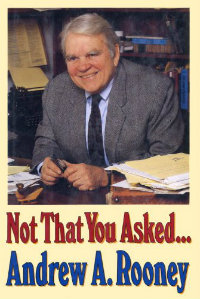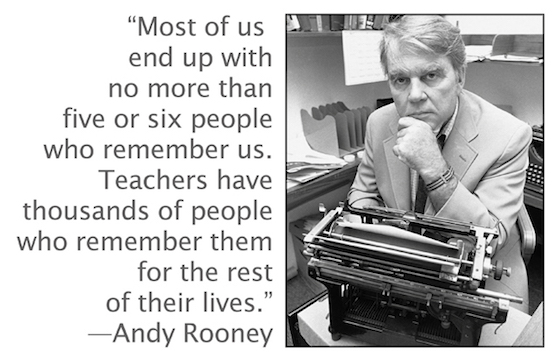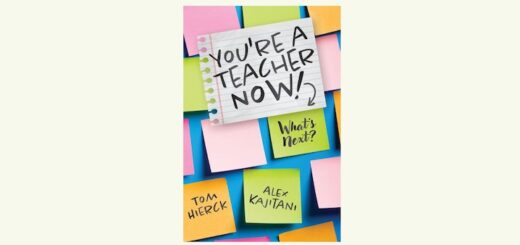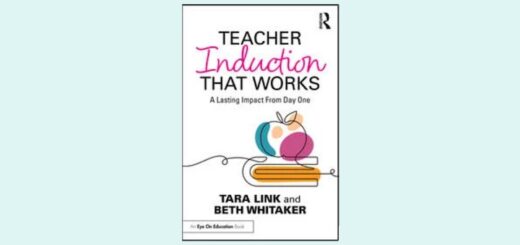Test Prompts to Stir Good Student Writing
A MiddleWeb Blog
 There seems to be some light appearing on the horizon since the dawn of PARCC testing arrived, slate gray and nebulous in its inception. I have been searching for ways to see the bright side, the silver lining, in all that is happening in education today, specifically with regard to standardized testing.
There seems to be some light appearing on the horizon since the dawn of PARCC testing arrived, slate gray and nebulous in its inception. I have been searching for ways to see the bright side, the silver lining, in all that is happening in education today, specifically with regard to standardized testing.
I can complain all I want. Complaining won’t solve anything. But writing about it helps me process what’s going on. Through writing and discussion, we can channel our ideas and move ahead with the business at hand…learning and growing as individuals.
Writing, as a form of discussion, can inspire us to ask some different questions, to look for creative answers, and to think things through. I want my students to learn the value of exploring different solutions.
But how can we “standardize” writing?
As many before me have pointed out (here and here), we don’t have standardized learners, so where does standardized testing have a place in it all?
Perhaps some sort of “standardized writing prompt” might help us gain some much-needed perspective on things – the kids’ perspective, that is. Prompts to stir good student writing, not good test-taking.
Getting inspiration from others
I am often inspired by other writers. This is a message I hope to pass on to my students. When I’m looking for answers, or maybe just a little hope, other writers have a way of inspiring me to keep searching, to keep digging for some nugget that I can try to spin into gold.
The late Andy Rooney – who died in 2011 at 92, one month after his final 60 Minutes commentary – is one of these writers. Rooney was a word guy. We are kindred spirits in this. I connect with him as a person and as a reader. This too is something I want to model for my students, the connection they can find with other writers, other people in the world.
Uncovering Andy Rooney amid samples
I found an article written by Rooney while digging for answers about the upcoming PARCC testing. Rooney’s piece was included in a practice test for seventh graders in Hawaii (a much more pleasant climate than the one we’ve had in New Jersey lately).

The text has many elements that can give us the opportunity for some good teaching. The text structure of Rooney’s reflections flash from present, to past…and back to present.
Settings, symbolism, and Rooney’s use of figurative language (as well as straight-forward language), make it easy for students to form personal connections, often in spite of the readability levels that his pieces may span. Rooney’s musings in this piece about the late Mr. Hahn are rated at a grade level of 6.2, but I think my fourth graders will get a lot out of it, as long as class activities and discussions are guided well.
Andy Rooney on writing
Mr. Rooney has offered many other pearls of wisdom for me over the years. In one quote he says,
I sit down at my typewriter, or my computer now, and I damn well decide to have an idea. That’s how you get an idea. They do not strike you very often in the middle of the night or when you’re doing something else….Ideas are amorphous, but you have to work on having one. They don’t come just out of the blue.”
How can we help our students to write on-demand? Do we tell them to “damn well have an idea” because the stakes are high?
Here’s an idea… Let’s bring Andy back with a little student-driven assessment.
Let’s use his musings across grade levels to inspire our students as writers (not as test-takers). Mr. Rooney once said, “Computers make it easier to do a lot of things, but many of the things they make it easier to do don’t need to be done.” I tend to agree with him.
Let’s get some feedback from the kids, as to what good teaching is, how they learn best, what teachers have inspired them over the years, how they feel about the state of our school system, and how it has impacted them. (They can write it by hand or “word process” their thoughts, whatever is more comfortable for them at the time of the assessment.)
Maybe using some “standardized writing prompts” can give us some valuable data to work with.
 Writing on how learning works
Writing on how learning works
I’m planning to use Mr. Rooney’s article, “Herbert Hahn,” to get some feedback from my own class about how they want to learn and grow. I know this information will prove helpful to me as their teacher.
The topic will inspire passion in my writers as well. They care about school. They care about what is going on around them. But mostly (like me) they just want to explore new ideas and enjoy the process of learning itself.
Here’s the procedure for the assessment:
Day 1: Read Rooney’s piece – Each child will have a copy, a highlighter, and a pencil for jotting notes and ideas in the margins.

Writing response (let’s not call it a task) for Reader’s Notebook:
What would you tell one of your former teachers if you were given the chance?
Day 2: Share responses from yesterday’s prompt with the whole class or with a partner. Read, highlight, discuss, and answer the related response questions (see the three multiple choice questions on the Hawaiian practice test)
Highlight “evidence” in the text where answers can be found.
Classify questions based on the idea of Q.A.R., or “Question and Response” analysis. This approach has been highly effective in helping my students break apart and analyze the individual questions being asked, in an attempt to see the different levels of understanding that the reader can experience.
Day 3: Assessment – Give the kids a writing prompt. Highlight the key words in the prompt as a class:
We have read and discussed the passage written about Herbert Hahn, a former English teacher of the late Andy Rooney. Mr. Rooney remembered this teacher quite vividly.
On the lines below, please reflect on the following:
- Has there been a teacher in your life who had a profound, or deep, effect on you as a learner?
- What was it about their teaching that helped you as a learner?
- What lessons, or wisdoms, did you learn from them, and why do you feel these lessons were important to you as a person?

Thank you, Mr. Rooney, for helping me find this one. And thank you, Mr. Hahn.
Some Extension Activities
► Use Andy Rooney quotes as “precepts for life” responses. This word guy had a way of wording things simply, but profoundly. He wisdom even attracted wrongly attributed collections.
► Watch video of Andy, so the kids can get a feel for him as a person. Here are his comments on being famous, part of a 4-hour interview for the Archive of American Television. (Writing response…Would you want to be famous? For what? What are the pros and cons?)
► Other Grade-Level Appropriate Writing Response Ideas and Sample Passages written by Andy Rooney (you decide…you know your kids):
Terror In New York: Hard To Find A Silver Lining In This Attack
True/False Tests Passage …funny!
My Crystal Ball – Predictions for the year …very funny!



































Great lesson. I hope many teachers use it!